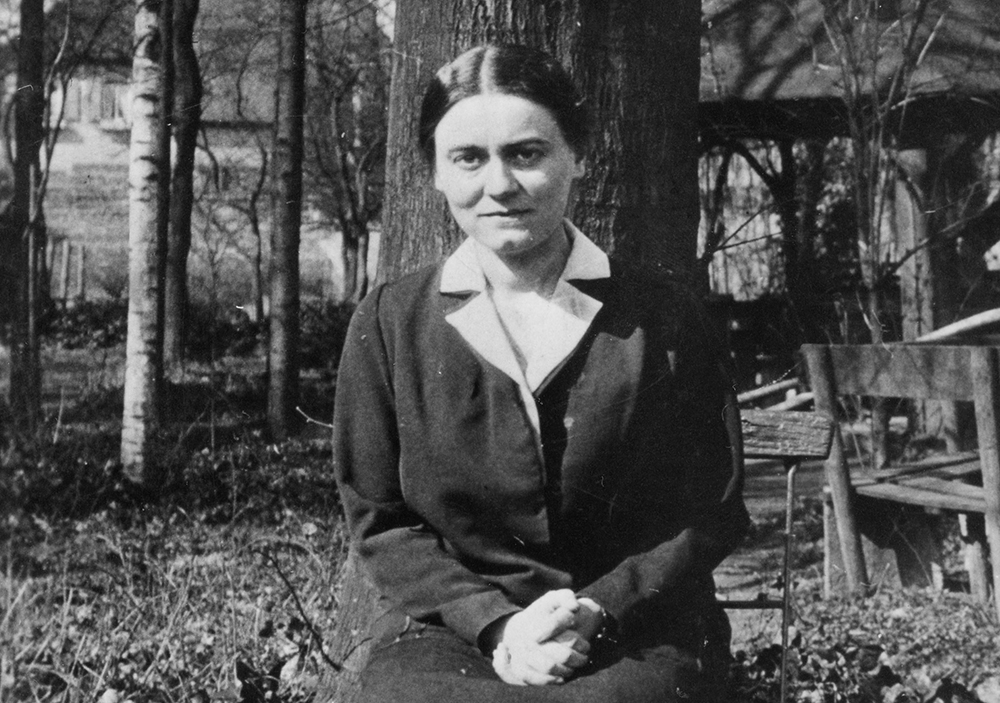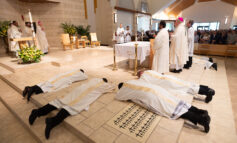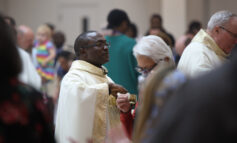
St. Teresa Benedicta of the Cross, also known as St. Edith Stein, is pictured in an undated photo. (CNS files)
By Father Thomas Esposito
Special to The Texas Catholic
Few religious orders can match the Carmelites’ All-Star lineup for sanctity of life and brilliance of theological writings: John of the Cross, Teresa of Avila, Thérèse of Lisieux, and Elizabeth of the Trinity are the heaviest hitters in this illustrious branch of contemplatives. Equal to those great figures, in my opinion, is the extraordinary but relatively unknown philosopher and martyr Edith Stein, also known by her religious name of Theresa Benedicta of the Cross.
Edith Stein was born on the Day of Atonement in 1891 to a German Jewish family. A brilliant and inquisitive girl, she was an atheist as a teenager and college student before her studies and friendships led her to God. As a pupil and then graduate assistant of the famous phenomenologist Edmund Husserl, Stein was on the cutting edge of a philosophical movement that sought to explain how we experience and know the truth that is manifest to us in the real world. She came to realize that truth is not a matter of blind conviction or popular opinion, but rather a “luminous certainty” that something is or is not so. Her detailed study of empathy revealed her fascination with the psychophysical structure of the human person, which points not only to the necessity of communion and friendship, but also to a transcendent and unifying truth beyond ourselves and the world of objects. Her work in philosophy brought her into contact with believing Catholics who harmonized their intellectual gifts with a life rooted in faith and love. She read the entire autobiography of St. Teresa of Avila in one sleepless night and, upon putting it down, exclaimed, “This is the truth!”
She was soon baptized into the Catholic Church, and after several years of teaching and lecturing, entered the Carmelite convent of Cologne, just as the evil shadow of Nazism was spreading over Germany. Knowing that her Jewish heritage made her and her fellow Carmelites a target for Hitler’s fiends, she transferred to a convent in Holland. In 1942, she was rounded up with other Catholic Jews in retaliation for the Catholic bishops’ denunciation of the Nazi treatment of Jews. She and her sister Rosa, who had also converted to Catholicism, were transported to Auschwitz, where they were murdered shortly after arriving.
Edith Stein is an extraordinary saint for our modern times. She made a decisive contribution to a secular movement in philosophy, and animated her Catholic faith with the insights she discovered in phenomenology. She never abandoned her Jewish roots, understanding her Carmelite vocation as a privileged opportunity to share in the sufferings of her people and in the cross of Christ. When the Nazis came to remove her from the convent, she grabbed her sister’s hand and said, firmly but calmly, “Come, Rosa. Let us go for our people.” She wrote often of the need for Catholics to make, and even see their lives as, an atoning sacrifice for the evil perpetrated in the world. The self-offering of another saint at Auschwitz, Maximilian Kolbe, comes vividly to mind in this regard.
As we approach her feast day (August 9), the day she was executed at Auschwitz, one particular quote of hers both challenges and encourages us:
“Why has our generation become so devoted – I almost said so addicted – to celebrating anniversaries? Is it the weight of the misery we feel that makes us want to escape the gray, oppressive atmosphere as much as possible – to seek refuge in the sun of better days? But flight is an unproductive reason for celebrating: I think we ought to assume there is a deeper, healthier motive behind our attraction to the past. We are a spiritually impoverished generation; we search in all the places the Spirit ever flowed in the hope of finding water. And that is a valid impulse. For if the Spirit is living and never dies, he must still be present wherever he once was active forming human life and the work of human hands. Not in a trail of monuments, however, but in a secret, mysterious life. He is like a small but carefully tended spark, ready to flare, glow, and burst into flame the moment he feels the first enkindling breath.”
Father Thomas Esposito, O.Cist., is a monk at the Cistercian Abbey of Our Lady of Dallas and teaches in the theology department at the University of Dallas.



